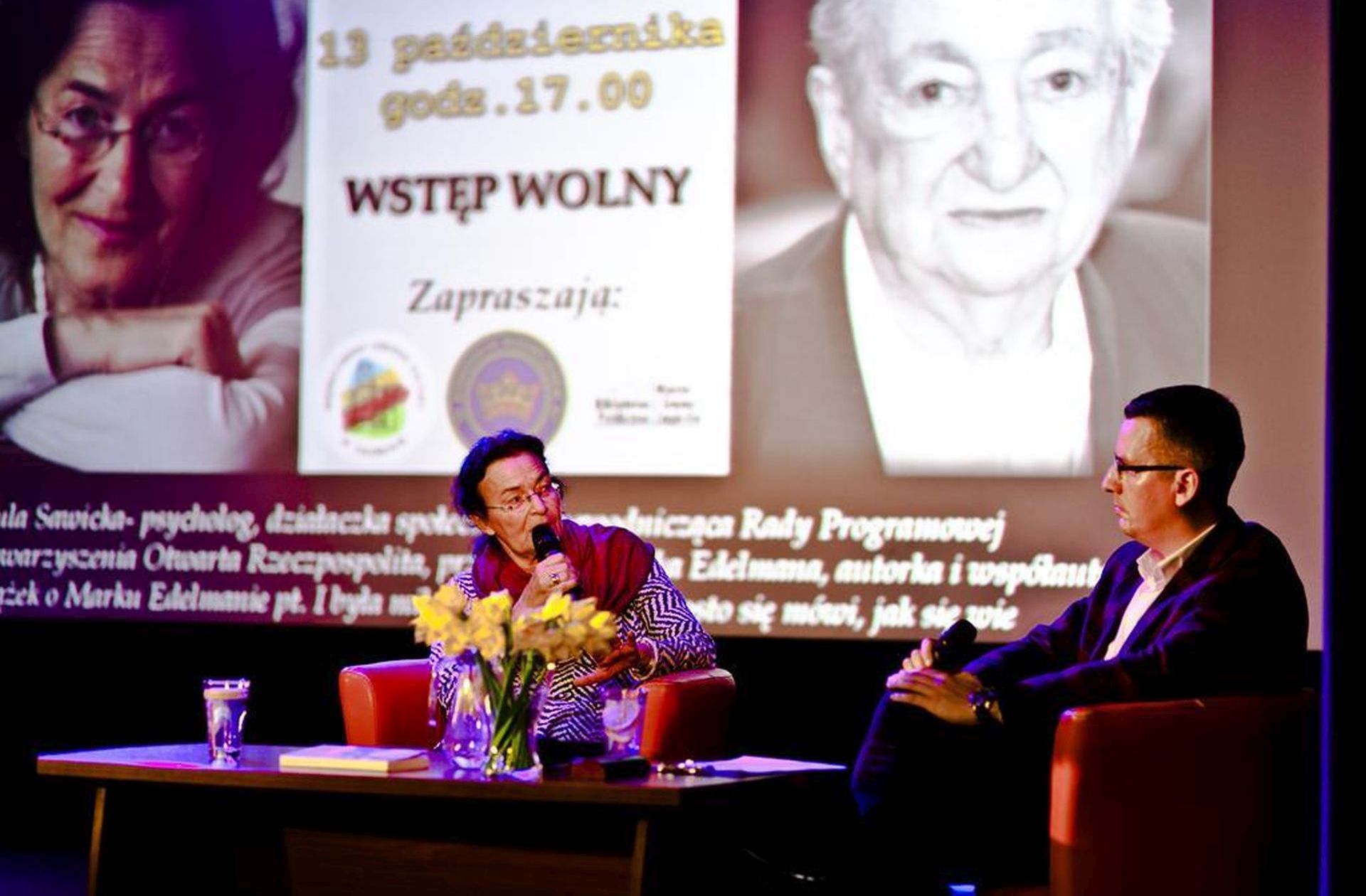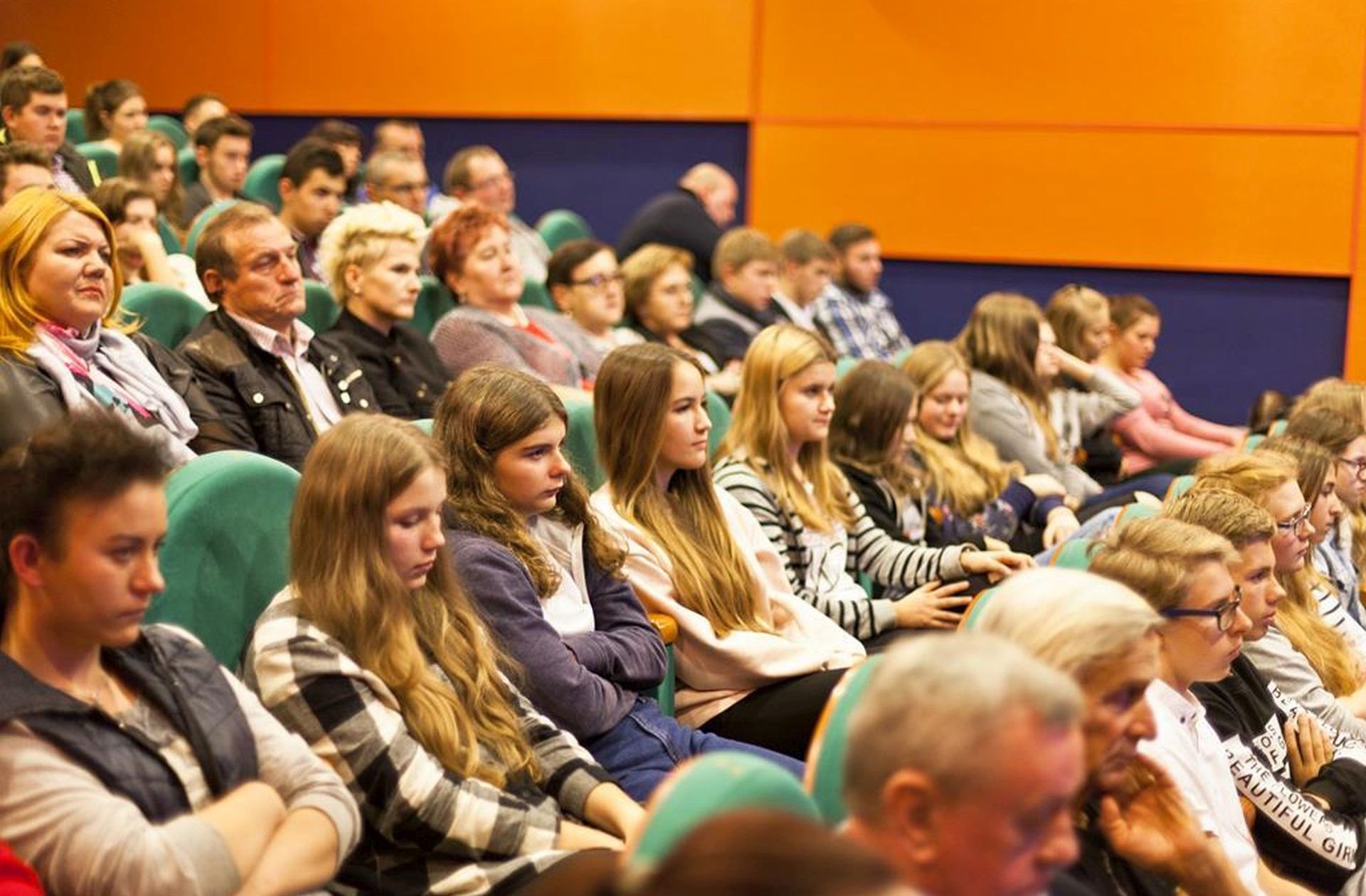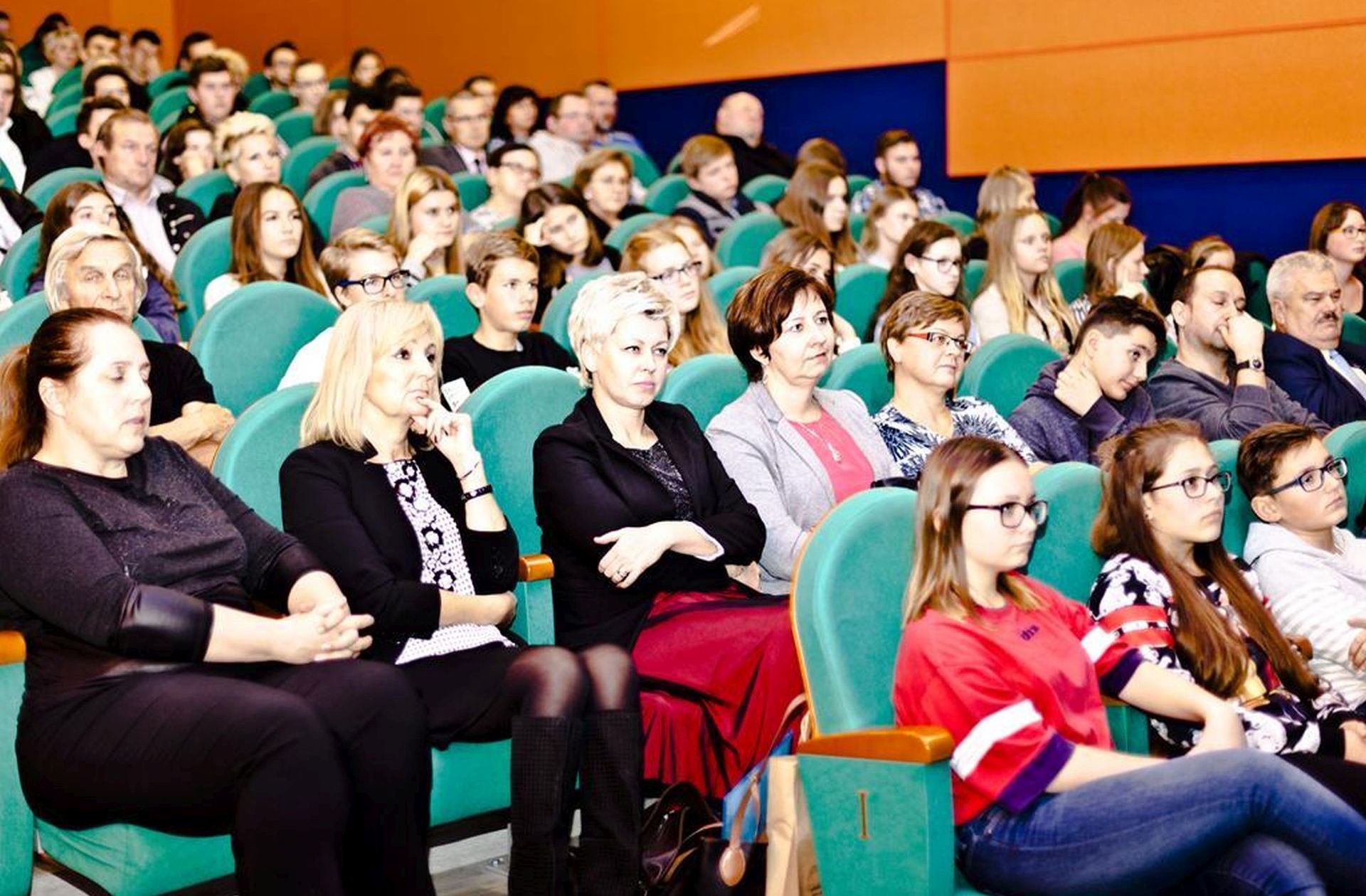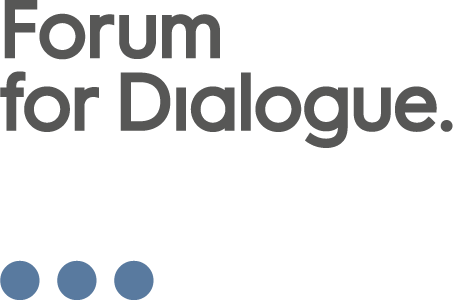On October 13, 2016, the municipal community center in Zagórów hosted a meeting with author Paula Sawicka entitled “What Can We Learn From Marek Edelman?” The event co-organized by the community center, the local middle school and the municipal library was attended by teacher Jakub Niewiński and students from Hipolit Cegielski Middle School in Murowana Goślina, who were in Zagórów on a school exchange program. The event was held under the auspices of “Miasteczko Poznań” socio-cultural journal.
Paula Sawicka is a psychologist, English language translator, social activist, chairperson of the program board at Otwarta Rzeczpospolita (Open Republic) Association, friend of Marek Edelman and an author or co-author of two books about him:I była miłość w getcie (And There Was Love in the Ghetto)and Prosto się mówi, jak się wie(It’s Easy to Say if You Know). Marek Edelman was one of the leaders of the Warsaw ghetto uprising, social and political activist, a talented doctor and cardiologist. In 1976, Hanna Krall published her bookTo Outwit God(“Zdążyć przed Panem Bogiem”), which bases on Krall’s interview with dr Edelman and is included in curriculum for secondary schools.
The meeting took the form of a conversation led by community center director Łukasz Parus. Questions for Paula Sawicka pertained to the life and moral attitude of dr Marek Edelman, authorities, question of evil, tolerance, patriotism, nationalism, anti-Semitism, intercultural dialogue and attitudes towards refugees. Here are fragments of Paula Sawicka’s answers:
Marek Edelman was a very demanding person, sometimes harsh, and yet very sensitive to and responsible for others. (…)
When I hear the slogan ‘Poland for the Poles’, I think that I would have liked a different kind of Poland, a ‘Poland for the people’. (…)
Anti-Semites do not need Jews, they will find other enemies. Anti-Semitism and other extreme view are of course bad, but they gain power when they hurt and scapegoat another human being.


